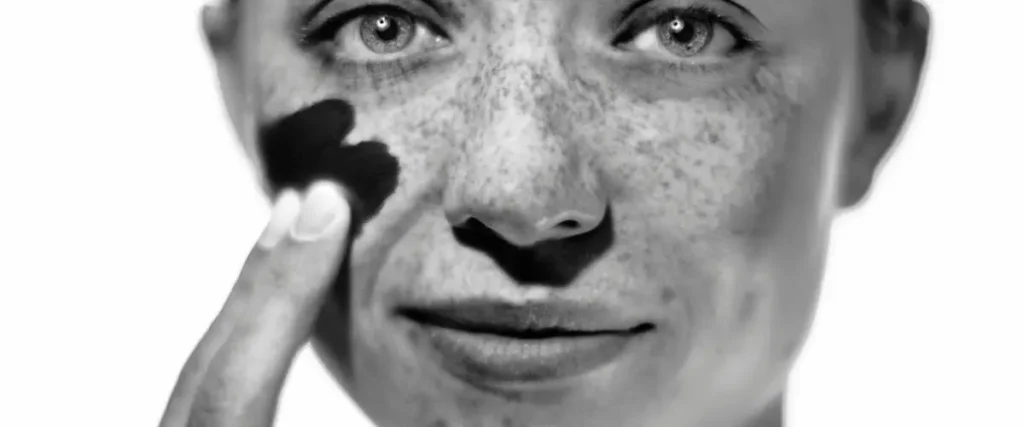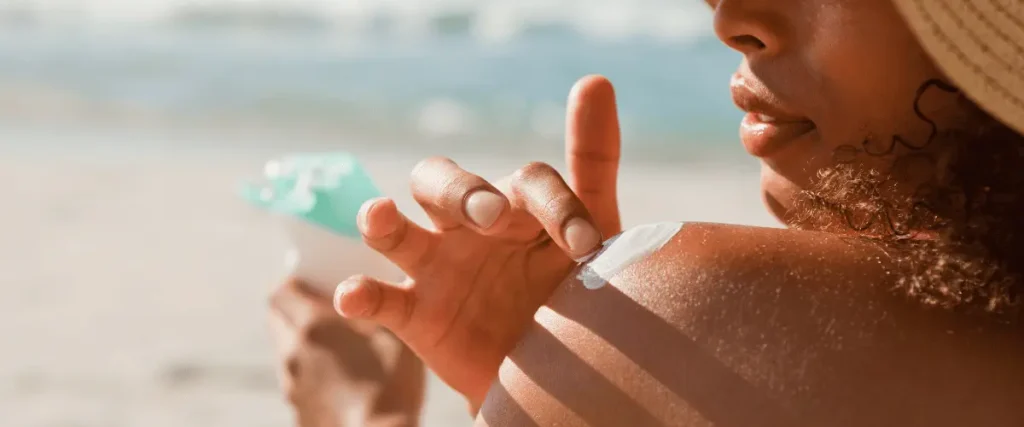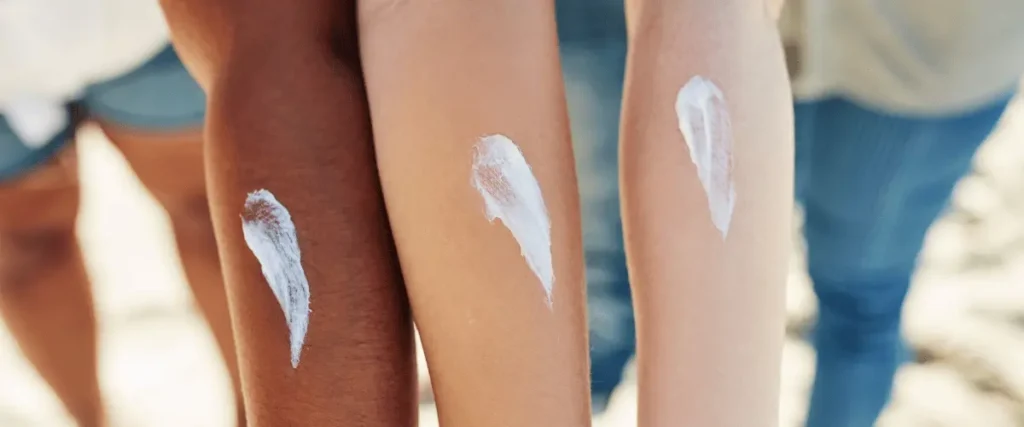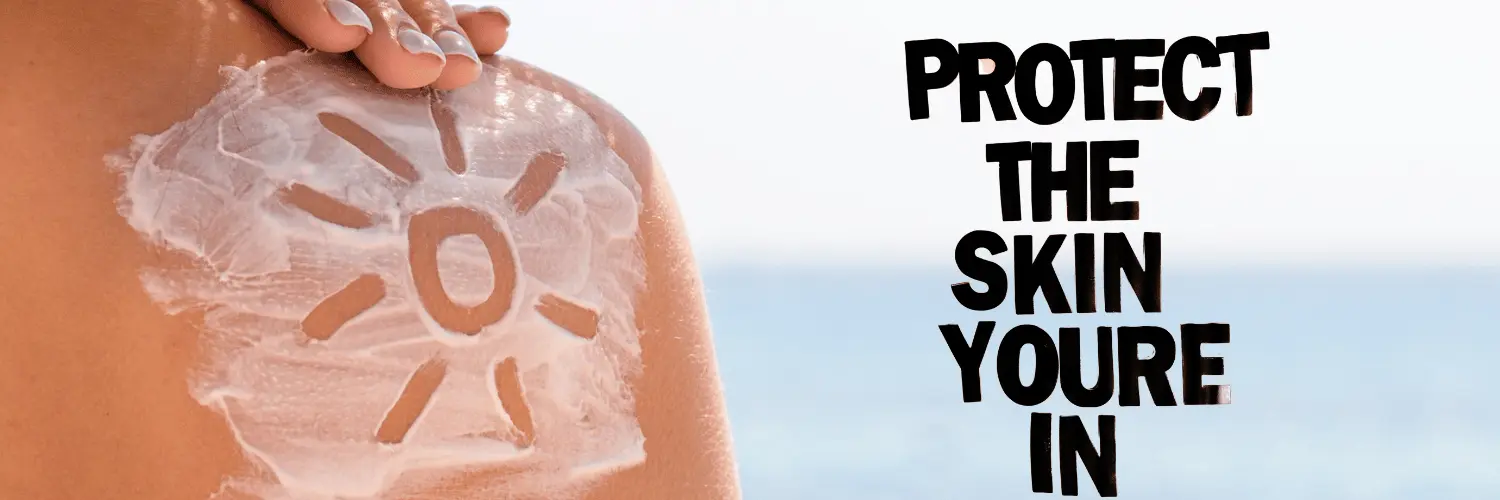Are you often puzzled by the maze of sunscreen options? With so many myths and misconceptions floating around, understanding the facts about sunscreen is crucial. we’ll debunk common sunscreen facts and shed light on the real benefits, especially for your face. Let’s embark on this journey to discover the truth about sunscreen and ensure your skin stays protected under the sun.
Now, let’s dive into these topics one by one and debunk those sunscreen facts.
SPF Demystified: What Does It Really Mean?

SPF stands for Sun Protection Factor, but what does that number on your sunscreen bottle mean? It’s a measure of how long your skin is protected from UVB rays. For instance, SPF 30 means you can stay in the sun 30 times longer without burning than if you weren’t wearing sunscreen.
The Importance of Sunscreen

Certainly! Here are several points detailing the importance of sunscreen:
- Protection Against UV Rays:
- Sunscreen provides a barrier against harmful UV rays from the sun.
- UV rays can cause skin damage, including sunburn, premature aging, and an increased risk of skin cancer.
- Prevention of Sunburn:
- Sunburn is not only painful but also indicative of skin damage caused by excessive exposure to UVB rays.
- Sunscreen with a suitable Sun Protection Factor (SPF) helps prevent sunburn by blocking or absorbing these rays.
- Reduction in Skin Cancer Risk:
- Prolonged and unprotected sun exposure is a significant risk factor for developing skin cancer.
- Regular use of sunscreen, especially with broad-spectrum protection, lowers the risk of skin cancers, including melanoma and squamous cell carcinoma.
- Prevention of Premature Aging:
- UV rays contribute to premature aging, causing wrinkles, fine lines, and age spots.
- Sunscreen with UVA protection helps maintain skin elasticity and reduces the signs of premature aging.
- Minimization of Hyperpigmentation:
- UV rays can trigger an overproduction of melanin, leading to hyperpigmentation and uneven skin tone.
- Sunscreen helps prevent and minimize hyperpigmentation, promoting a more even complexion.
- Safeguarding Sensitive Areas:
- Certain areas of the body, such as the face, neck, and hands, are more susceptible to sun damage.
- Sunscreen offers targeted protection for these sensitive areas, preventing sun-induced damage and maintaining skin health.
- Prevention of Sun-Related Eye Damage:
- Sunscreen applied around the eyes can protect the delicate skin from UV rays damage and reduce the risk of cataracts and other eye issues.
- Year-Round Protection:
- Sunscreen should be a part of your daily skincare routine, not just during sunny days or beach outings.
- Consistent use throughout the year helps protect your skin from cumulative sun damage.
- Protection for All Skin Types:
- Regardless of skin tone, everyone is susceptible to sun damage and its associated risks.
- Sunscreen is essential for individuals with lighter and darker skin tones alike.
- Maintaining Overall Skin Health:
- Sunscreen contributes to overall skin health by preventing damage, maintaining hydration, and supporting the skin’s natural defenses.
- Healthy skin is not only aesthetically pleasing but also a reflection of good skincare practices.
- Preserving Collagen and Elastin:
- UV rays can break down collagen and elastin fibers in the skin, leading to sagging and loss of firmness.
- Sunscreen helps preserve these essential skin proteins, promoting a more youthful appearance.
- Preventing Sun-Induced Allergies and Sensitivities:
- Some individuals may develop sun allergies or sensitivities, resulting in rashes or redness upon sun exposure.
- Sunscreen acts as a protective barrier, reducing the likelihood of such reactions.
There Are Various Myths for Sunscreen :
Myth 1: Dark Skin Doesn’t Need Sunscreen

False! All skin types need sunscreen. While darker skin has more natural protection, it’s not immune to UV rays damage. Skin cancer can affect anyone, regardless of their skin tone.
Myth 2: You Only Need Sunscreen on Sunny Days

UV rays are present year-round, even on cloudy days. The need for sunscreen doesn’t vanish with the sun. Protect your skin daily to maintain its health and youthful appearance.
Myth 3: Sunscreen Blocks All Vitamin D Absorption

While sunscreen reduces some vitamin D production, it’s not a complete barrier. A few minutes of sun exposure on your arms and legs are usually sufficient for your daily dose of vitamin D.
How To Apply Sunscreen Effectively
Applying sunscreen effectively is crucial to ensure proper protection against the sun’s harmful rays. Here’s a detailed guide on how to apply sunscreen:
- Choose the Right Sunscreen:
- Select a broad-spectrum sunscreen that protects against both UVA and UVB rays.
- Check for a Sun Protection Factor (SPF) of at least 30 for daily use and higher if you’re spending extended time outdoors.
- Apply Sunscreen Before Sun Exposure:
- Apply sunscreen at least 15 to 30 minutes before going outside to allow it to absorb into the skin.
- This ensures that the sunscreen forms a protective barrier before sun exposure.
- Use the Right Amount:
- Apply a generous amount of sunscreen to all exposed skin areas.
- A common guideline is to use about one ounce (30 ml) for a full-body application.
- Cover All Exposed Areas:
- Pay attention to commonly overlooked areas such as the ears, neck, back of the hands, and tops of the feet.
- For facial application, cover the entire face, including the nose, ears, and neck.
- Consider Your Clothing:
- If you’re wearing clothing with less coverage, apply sunscreen underneath to protect exposed areas.
- Don’t forget areas where clothing may shift, like the neckline or sleeves.
- Reapply Regularly:
- Sunscreen effectiveness diminishes over time, especially with factors like sweating, swimming, or rubbing against clothing.
- Reapply sunscreen every two hours, or more frequently if you’re sweating heavily or swimming.
- Pay Attention to Sensitive Areas:
- Take extra care when applying sunscreen around the eyes to avoid irritation.
- Consider using a sunscreen specifically designed for the face on facial skin.
- Don’t Forget Lips:
- Lips can also be susceptible to sun damage. Use a lip balm or lipstick with SPF protection to safeguard your lips.
- Layer Sunscreen with Other Products:
- If using other skincare products, apply sunscreen as the final step in your routine.
- This ensures that the sunscreen forms a protective barrier on top of your skincare products.
- Be Mindful of Sunscreen Expiration Dates:
- Check the expiration date on your sunscreen, and discard any expired products.
- Expired sunscreen may lose its effectiveness and fail to provide adequate protection.
- Consider Water-Resistant Formulas:
- If you’ll be swimming or engaging in activities that cause sweating, opt for a water-resistant sunscreen.
- Water-resistant sunscreens provide better adherence to the skin in challenging conditions.
- Educate Yourself on Specific Sunscreen Types:
- Understand the differences between chemical and physical (mineral) sunscreens.
- Chemical sunscreens need time to absorb into the skin, while physical sunscreens create a protective barrier on the skin’s surface.
- Incorporate Sunscreen into Your Daily Routine:
- Make sunscreen application a daily habit, even on cloudy days.
- Incorporating it into your routine helps ensure consistent protection and promotes long-term skin health.
The Longevity of Sunscreen: How Often to Reapply?

The longevity of sunscreen is a crucial aspect of sun protection, as its effectiveness can diminish over time due to various factors. Reapplying sunscreen at the right intervals is essential to ensure continuous protection against the sun’s harmful UV rays. Here’s a detailed explanation of how often you should reapply sunscreen:
- Time Interval:
- A general rule of thumb is to reapply sunscreen every two hours.
- This timeframe accounts for the natural breakdown of sunscreen ingredients and the potential for sweat, water exposure, or friction from clothing to reduce its efficacy.
- More Frequent Reapplication in Specific Situations:
- If you’re swimming or sweating heavily, reapply sunscreen more frequently.
- Water-resistant sunscreen may provide extended protection but still requires reapplication after a certain period, usually 40 to 80 minutes, as indicated on the product label.
- Towel Drying and Friction:
- Towel drying after swimming or any activity that causes friction on the skin can remove sunscreen.
- Reapply sunscreen after toweling off to maintain protection.
- Extended Sun Exposure:
- If you’re spending an extended period in the sun, consider reapplying sunscreen more frequently than every two hours.
- Activities like outdoor sports or prolonged sunbathing increase the risk of sunscreen wearing off.
Sunscreen Under Makeup: A Must for Flawless Skin
Protects Against UV Rays Damage:
Sunscreen under makeup is essential for shielding your skin from harmful UV rays. UV exposure can lead to premature aging, wrinkles, and an increased risk of skin cancer. Sunscreen acts as a protective barrier, preventing sun damage and maintaining the health and appearance of your skin.

Prevents Hyperpigmentation and Uneven Skin Tone:
Sunscreen helps prevent hyperpigmentation and the development of uneven skin tone caused by UV radiation. By incorporating sunscreen into your makeup routine, you minimize the risk of dark spots, discoloration, and other sun-induced skin issues, promoting a more even and radiant complexion.
Preserves Youthful Appearance:
Regular use of sunscreen under makeup contributes to preserving a youthful appearance. UV rays can accelerate the breakdown of collagen and elastin, leading to sagging skin and fine lines. Sunscreen helps maintain the skin’s elasticity, reducing the signs of aging and promoting a smoother, more flawless complexion.
Read more blogs on beautiful vacation destinations on Beachxp.
Sunscreen for All Ages: Protecting Kids and Adults

- Broad Spectrum Protection: Sunscreen provides comprehensive defense against both UVA and UVB rays, safeguarding the skin from sun damage. This protection is essential for people of all ages, as prolonged exposure to these rays can lead to premature aging, sunburns, and an increased risk of skin cancer.
- Prevention of Sun-Related Health Issues: Regular use of sunscreen helps prevent various sun-related health issues, such as sunburns, heatstroke, and long-term skin damage. This is crucial for both children and adults, as overexposure to the sun can have immediate and long-term consequences on skin health.
- Skin Cancer Prevention: Applying sunscreen reduces the risk of developing skin cancer, including melanoma, the most dangerous form. By incorporating sunscreen into daily skincare routines for individuals of all ages, we can contribute to the long-term well-being of our skin and decrease the likelihood of skin cancer development.
Is There a Difference Between Sunscreen and Sunblock?
Yes, there is a distinction between sunscreen and sunblock, primarily in their mode of action and the types of protection they offer:
- Sunscreen:
- Chemical Protection: Sunscreens contain organic (chemical) compounds that absorb UV radiation before it penetrates the skin.
- Absorption: These products absorb UV rays and transform them into harmless heat, providing a broad-spectrum protection against both UVA and UVB rays.
- Transparent Finish: Sunscreens are often transparent on the skin, making them aesthetically preferable for those who don’t want a visible layer.
- Sunblock:
- Physical Protection: Sunblocks, on the other hand, use inorganic (physical) compounds like zinc oxide or titanium dioxide that sit on top of the skin and create a barrier that reflects or scatters UV radiation.
- Reflection: Instead of being absorbed, UV rays are reflected away from the skin’s surface.
- Visible Residue: Sunblocks can sometimes leave a visible residue on the skin due to the physical barrier they create.
Save more on Getyourguide and book your next vacation this summer 2024.
Conclusion: sunscreen facts
In the quest for healthy, radiant skin, sunscreen is your trusted companion. Debunking myths and understanding the benefits of sunscreen empowers you to make informed choices. Protect your skin from the sun’s harmful rays this summer 2024, maintain your youthful glow, and reduce the risk of skin cancer. Your sunscreen journey starts today!
For more tips for your skin this summer 2024 visit Beachxp.





